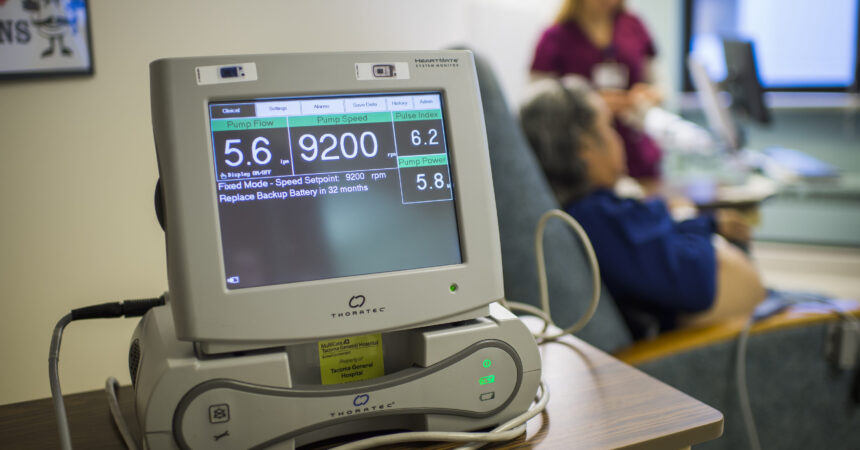
Heart Failure



Heart failure, sometimes referred to as congestive heart failure, occurs when the heart no longer has the capacity to pump enough blood to keep the body functioning normally.
In some cases, the ventricles—the heart’s pumping chambers—become weak, losing the ability to contract normally and pump blood back into circulation with enough force. In other cases the ventricles become too stiff, losing the ability to relax enough to properly fill with blood during the resting period between each beat.
As a result, it can become difficult to manage everyday activities like walking, carrying groceries, and tending to other basic needs. Many people develop fatigue, dizziness, shortness of breath, and other symptoms. If left untreated, heart failure can lead to heart attack or cardiac arrest.
Heart Failure Education
Visit our Heart Failure Education page for heart failure resources.
-
Causes
-
Causes of heart failure include:
- Coronary artery disease, in which arteries that supply blood to your heart muscle fill with plaques and become narrow, reducing blood flow to your heart.
- High blood pressure, which causes your heart to work harder than it should to pump blood. This can cause the heart muscle to weaken and stiffen.
- Faulty heart valves, which can also cause your heart to work harder, weakening the heart muscle.
- Damage to the heart muscle from diseases, infections, alcohol abuse, and the toxic effects of certain drugs.
- Myocarditis, an inflammation of the heart muscle caused by a virus.
- Congenital heart defects, in which certain chambers or valves didn’t form correctly before you were born.
- Heart arrhythmias, abnormal heart rhythms.
- Chronic diseases such as diabetes, HIV, hyperthyroidism or hypothyroidism.
-
Risk Factors
-
Even a single risk factor can be enough to cause heart failure, but more than one of the following increases your risk:
- High blood pressure
- Coronary artery disease
- Heart attack
- Diabetes and some diabetes medications
- Sleep apnea
- Congenital heart defects
- Valvular heart disease
- Viruses
- Alcohol and tobacco use
- Irregular heartbeats
-
Symptoms
-
The most common signs and symptoms of heart failure include shortness of breath, fatigue, and swelling in the ankles, feet, legs, and abdomen.
-
Treatment
-
Depending on the type of heart failure and how severe it is, doctors usually prescribe treatment programs that include:
- Medications such as beta blockers, ACE inhibitors, diuretics, or others.
- Surgery and medical devices.
- Lifestyle changes and home remedies such as heart-healthy eating, increased physical activity, stopping smoking, and maintaining a healthy weight.
